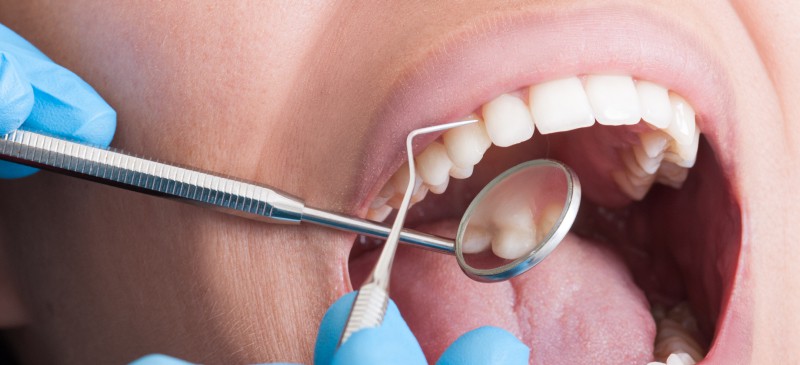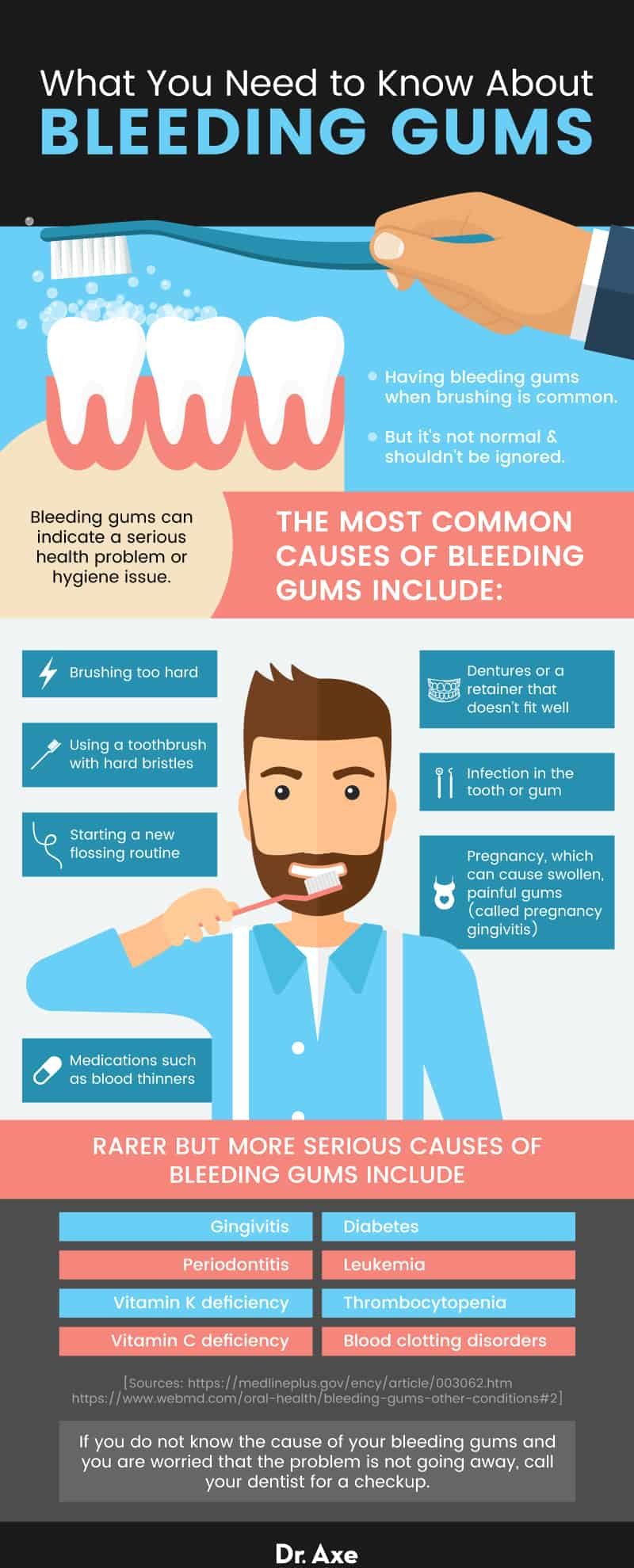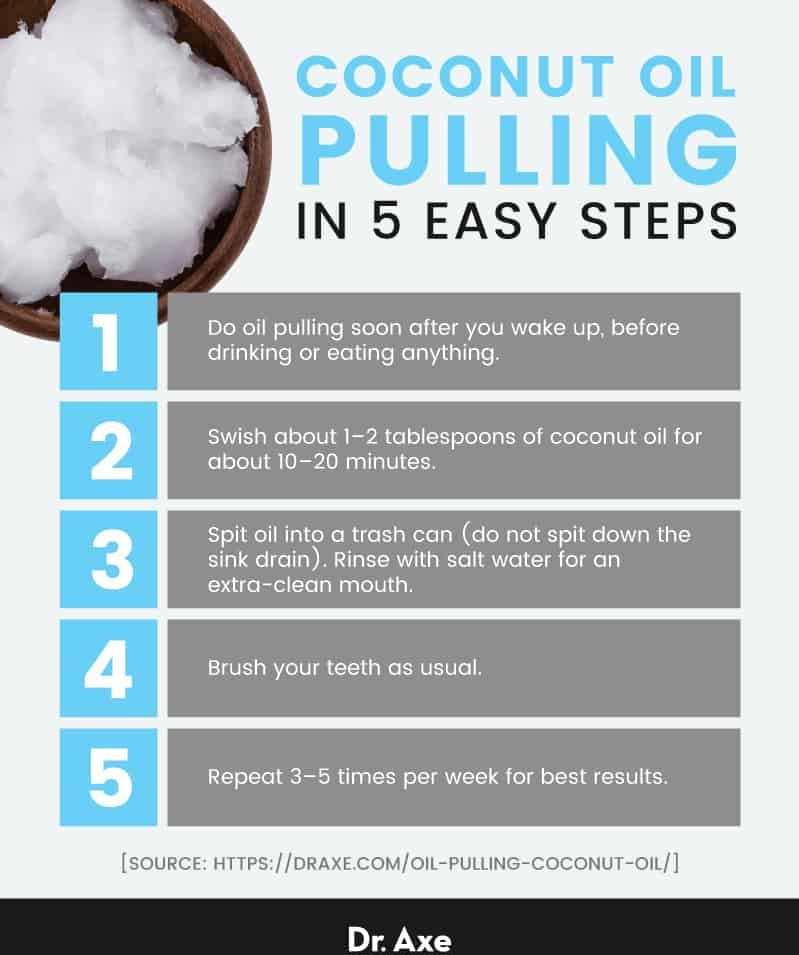This Dr. Axe content is medically reviewed or fact checked to ensure factually accurate information.
With strict editorial sourcing guidelines, we only link to academic research institutions, reputable media sites and, when research is available, medically peer-reviewed studies. Note that the numbers in parentheses (1, 2, etc.) are clickable links to these studies.
The information in our articles is NOT intended to replace a one-on-one relationship with a qualified health care professional and is not intended as medical advice.
This article is based on scientific evidence, written by experts and fact checked by our trained editorial staff. Note that the numbers in parentheses (1, 2, etc.) are clickable links to medically peer-reviewed studies.
Our team includes licensed nutritionists and dietitians, certified health education specialists, as well as certified strength and conditioning specialists, personal trainers and corrective exercise specialists. Our team aims to be not only thorough with its research, but also objective and unbiased.
The information in our articles is NOT intended to replace a one-on-one relationship with a qualified health care professional and is not intended as medical advice.
What Causes Bleeding Gums? + 5 Easy Natural Remedies
February 13, 2018

Having bleeding gums is a common oral health problem. In many cases, it may be due to simple, temporary causes, like brushing too hard or just starting a flossing routine. In others, it may be a warning sign for a serious health issue. On top of going to the dentist, there are many ways you can naturally take care of bleeding gums.
What Are Bleeding Gums?
Bleeding gums simply means that the pink tissue around your teeth is broken or irritated. Having bleeding gums when brushing is common. However, it is not normal. It should not be ignored. Healthy gums do not bleed when brushing or flossing, just like a healthy scalp doesn’t bleed when you comb your hair.
Bleeding gums can indicate a serious health problem or hygiene issue. This is particularly the case if you have bleeding gums without brushing or flossing.
Some causes of bleeding gums can be fixed quickly — for example, by changing out a hard-bristled toothbrush for a soft one. Other causes take long-term treatment, both for your gums and for underlying health problems. If you have bleeding gums even after you’ve tried to fix the problem by changing your oral health care routine, call your doctor or dentist.
Signs and Symptoms
What is a sign of bleeding gums?
Other than actually seeing your gums bleed in the mirror, you can tell if your gums are bleeding by noticing other signs and symptoms:
- Spitting out pink or red-colored toothpaste when you brush your teeth
- Noticing a pink or red-colored tinge on your toothbrush after brushing
- Tasting blood or a metallic flavor
- Seeing pink or red in chewing gum that you spit out
- Noticing blood on your lips or teeth
- Seeing blood on your floss or in the saliva you spit out while flossing
You may also have signs and symptoms of other gum problems that often go along with bleeding gums, such as: (1)
- Bad breath that doesn’t go away
- Red or swollen gums
- Tender or painful gums
- Loose teeth
- Pain when chewing
- Sensitive teeth
- Receding gums
Depending on the cause of your gum problem, you may notice other symptoms. These can include gums bleeding at night only; gums bleeding around one tooth; bleeding after eating crunchy foods; infections in your mouth and more. If you do not know the cause of your bleeding gums and you are worried that the problem is not going away, call your dentist for a checkup.
Related: What Is the Oral Microbiome? How to Balance It to Improve Overall Health
Causes and Risk Factors
The most common causes of bleeding gums include: (2, 3)
- Brushing too hard
- Using a toothbrush with hard bristles
- Starting a new flossing routine
- Dentures or a retainer that doesn’t fit well
- Infection in the tooth or gum
- Pregnancy, which can cause swollen, painful gums (called pregnancy gingivitis)
- Medications such as blood thinners
Rarer but more serious causes of bleeding gums include: (2)
- Gingivitis
- Periodontitis
- Vitamin K deficiency
- Vitamin C deficiency
- Diabetes
- Leukemia
- Thrombocytopenia
- Blood clotting disorders, such as hemophilia and von Willebrand disease
Risk factors for bleeding gums include: (4)
- Having any of the health conditions listed as causes of bleeding gums
- Taking a medication such as warfarin, heparin or aspirin
- Eating a diet low in vitamins K or C
- Not cleaning your teeth and gums well enough
- Using tobacco products
- Experiencing a lot of stress
- Having family members with poor gum health

Conventional Treatment
How do you fix bleeding gums?
Your dentist should work with you to figure out the most appropriate treatment for your bleeding.
- In most cases, bleeding gums treatment involves improving or changing your brushing and flossing technique.
- If you have gum disease or another health condition, your treatment may also involve treating the underlying health problem.
- If bleeding is caused by a medication, your physician may change your dose, prescribe something else, or have you work with your dentist to find ways to clean your teeth and gums without causing bleeding.
- For women who are pregnant, the problem may go away after the baby is born.
- In cases of bleeding gums caused by gum disease, treatment may include: (1)
- Oral antibiotics
- Antibiotic mouthwash
- Pills called enzyme suppressants
- Insertion of antibiotic gel, particles or chips directly into the gums
- Physical cleaning of the teeth and gums by a periodontist
- Surgery
Natural Remedies
Knowing how to stop bleeding gums will depend on why you have the problem in the first place. In general, however, the natural remedies below can help you address some of the most common causes of bleeding gums and also improve your oral hygiene. If the steps below still don’t stop your bleeding gums, see a health care professional. You may need medical treatment for an underlying health problem.
You may wish to try these natural remedies for bleeding gums:
1. Use pressure or mouth rinses to stop bleeding quickly
If you are bleeding and it doesn’t stop on its own within a minute or two, you can try a few natural approaches. These include:
- Cold compress. (3, 5) Hold a cold compress against the affected side of your mouth. This causes the blood vessels to tighten so that not as much blood will flow through. Try wrapping an ice cube in a clean cloth and holding it against the bleeding part of your gum. You can also dip a gauze pad in ice water and hold it against the gum.
- Salt rinse. (6) Gently swish warm salt water around in your mouth. It will clean out the blood and some bacteria and may help dry up the affected area. You can add baking soda and hydrogen peroxide to improve the bacteria-killing effect of the wash. You may need to avoid the salt-water rinse if you have high blood pressure.
- Apply pressure. (3) If you do not have a cold compress or gentle mouth rinse, you can apply pressure to the area with a clean cloth or, if need be, a clean finger.
2. Master the art of oral hygiene
Many people may have bleeding gums just because of improper brushing or flossing techniques. For others, bleeding gums may be a sign that gum disease has developed, often because of poor oral hygiene. You can learn to take care of your teeth and gums so that over time, swelling and bleeding in your gums should happen less often.
You can follow the steps below to improve your oral hygiene. If you have more questions or if these steps don’t help stop the bleeding and improve other symptoms in your mouth (swelling, pain, bad breath), visit your dentist.
- Use a soft-bristle toothbrush. Replace it at least every three or four months or earlier if it starts to look worn. (7)
- Brush gently, twice a day for two minutes each time. (7) According to the American Dental Association, proper brushing includes these steps: (8)
- Hold the toothbrush at a 45-degree angle
- Brush back and forth in gentle, short strokes
- Brush the outside, inside and chewing surfaces of all of your teeth
- Hold the brush straight up and down to make several up-and-down strokes against the inside of your front teeth
- Finish by brushing your tongue
- Clean the gumline and gums as well.
- Rinse with clean water. (5)
- Floss every day. If you are just starting to floss and did not notice bleeding before your new routine, it may just take several days for your gums to toughen up. If they still bleed every time you floss after a week, talk to your dentist. You may need to change your technique or look for other causes for your bleeding gums.
- Disinfect with a homemade massage paste. (6) In a small dish, mix one part baking soda with one part salt. Dip your toothbrush in the mixture and use it to clean your teeth and gently massage your gums.
- irrigation
- Make a homemade mouthwash. Do not use store-bought mouthwash that has alcohol. These can make bleeding gums worse. (3) You can rinse with salt water or a hydrogen peroxide and water mix. If you prefer, you may also be able to kill bacteria and freshen breath using a gentle homemade mouthwash. The general recipe is to add five to 10 drops of food-grade essential oil to two cups of water. Tea tree oil, eugenol (found in clove oil) and peppermint oil can kill bacteria that often enter the body through the mouth. (9) Tea tree oil is also gentler than hydrogen peroxide, since it does not cause any tissue damage. (10) Other good options for natural mouthwash ingredients include sage, aloe vera, lemongrass and guava leaf. (11) If you notice irritation or bleeding after the use of any type of mouthwash, stop using it and talk to your dentist about a better option for you.
- Try oil pulling. Try swishing food-grade oil in your mouth for 20 to 30 minutes. There is evidence that supports the use of oil pulling for reducing inflammation and symptoms of gum disease. (11) Good options may include coconut oil, olive oil, sesame oil, and arimedadi oil.

3. Visit the dentist
Going to the dentist for a cleaning and oral exam every six months is a crucial way to stay on top of your oral health. The dentist or hygienist can remove the plaque that builds up in the mouth, which can lead to gum disease and bleeding. (3) In addition, the dentist can help you figure out the cause of your bleeding gums.
If your bleeding is caused by your brushing or flossing technique, you can learn the best way to take care of your mouth to avoid irritating your gums. In addition, the dentist can check any mouth appliances, such as dentures, retainers or bridges to make sure that they fit properly. He or she can also recommend the best tools for brushing your teeth. You may need to start irrigating your gums if your dentist finds pockets that may collect bacteria. (3)
If the dentist cannot find a simple physical cause for the bleeding, he or she can also let you know if it’s time to visit your doctor. In some cases, bleeding gums can indicate a health problem, such as diabetes or heart disease. When you have tried treating your bleeding gums with the strategies your dentist gives you and you still have bleeding gums, it may be time to see a doctor.
4. Treat vitamin deficiencies
If you have a poor diet or a confirmed vitamin deficiency, you may need to improve your diet or take supplements.
- Ask about vitamin K1. Doses for adults range from one to 25 milligrams. However, if you take blood thinners, the dose range may be lower (one to 10 milligrams). (12) Ask a doctor about a safe dosage for you if you are not sure how much to take.
- Get more vitamin K in your diet. Dr. Axe recommends consuming two or three dietary sources of vitamin K per day. Foods rich in vitamin K include:
- Green leafy vegetables, such as kale
- Fermented soy (natto)
- Spring onions
- Brussels sprouts
- Cabbage
- Broccoli
- Dairy (fermented)
- Prunes
- Cucumbers
- Dried basil
- Consider a vitamin C supplement. Some research on the use of vitamin C to treat bleeding gums is mixed. Vitamin C deficiency is certainly related to bleeding gums in some people, but it’s not clear whether taking supplements directly helps fix the problem. However, the recommended daily allowance of 75 milligrams for women and 90 milligrams for men is believed to be a safe amount for most people. (13)
- Eat a vitamin C-rich diet. A study of 86 patients receiving treatment for gum disease found that higher dietary intakes of fruits, vegetables, beta-carotene, vitamin C, alpha-tocopherol and omega-3 fatty acids were associated with better gum healing in nonsmokers. (14) Foods rich in vitamin C include:
- Guava, papaya, pineapple and mangoes
- Black currant
- Red and green peppers
- Kiwi and strawberries
- Oranges and grapefruits
- Strawberries
- Broccoli and cauliflower
- Kale and parsley
- Brussels sprouts
- Peas
- Think about a vitamin D supplement. A study of 6,700 people found that higher levels of vitamin D in the blood decreased the risk of bleeding when the gums were probed. (15) The researchers believe the anti-inflammatory effect of vitamin D may help reduce gum swelling.
- Eat for oral health. There are many ways your diet can affect your oral health. For example, try a diet that fights cavities to also improve the health of your teeth.
5. Stop using tobacco
Smoking is a key cause of poor gum health in the United States. And it’s not just smoking cigarettes — pipes, chewing tobacco, and other tobacco use also raise your risk for gum disease. It is believed that smoking weakens your immune system. This makes it harder to fight bacteria in your mouth and, once your gums are damaged, it makes it harder to heal. (16)
Precautions
- If these natural remedies for bleeding gums don’t work for you, or if it seems your gums are bleeding for no reason, talk to your dentist. Irritated or bleeding gums can be a sign of a serious oral health problem or even an underlying chronic disease.
- Do not stop taking blood thinners or other medicines that you have been prescribed unless advised by your doctor.
- If you take medications or have a known health condition, talk to a health care professional before starting dietary supplements.
- If you have diabetes or heart disease, it is important to take care of your gums. Bad oral health may put you at risk for complications with your chronic illness.
Conclusion
- Bleeding gums are often caused by simple things: a hard toothbrush, a new flossing routine, or ill-fitting dentures.
- If you improve your oral hygiene and address any possible physical causes of your bleeding gums and they still don’t improve, talk to your dentist or doctor.
- In many cases, bleeding gums can be treated by changing your hygiene habits and using home remedies. However, some cases are caused by serious disease and may require antibiotics, scaling, specialty drugs or dental care, and even surgery.
Natural remedies for bleeding gums include:
- Use pressure or mouth rinses
- Master the art of oral hygiene
- Visit the dentist
- Treat vitamin deficiencies
- Stop using tobacco











